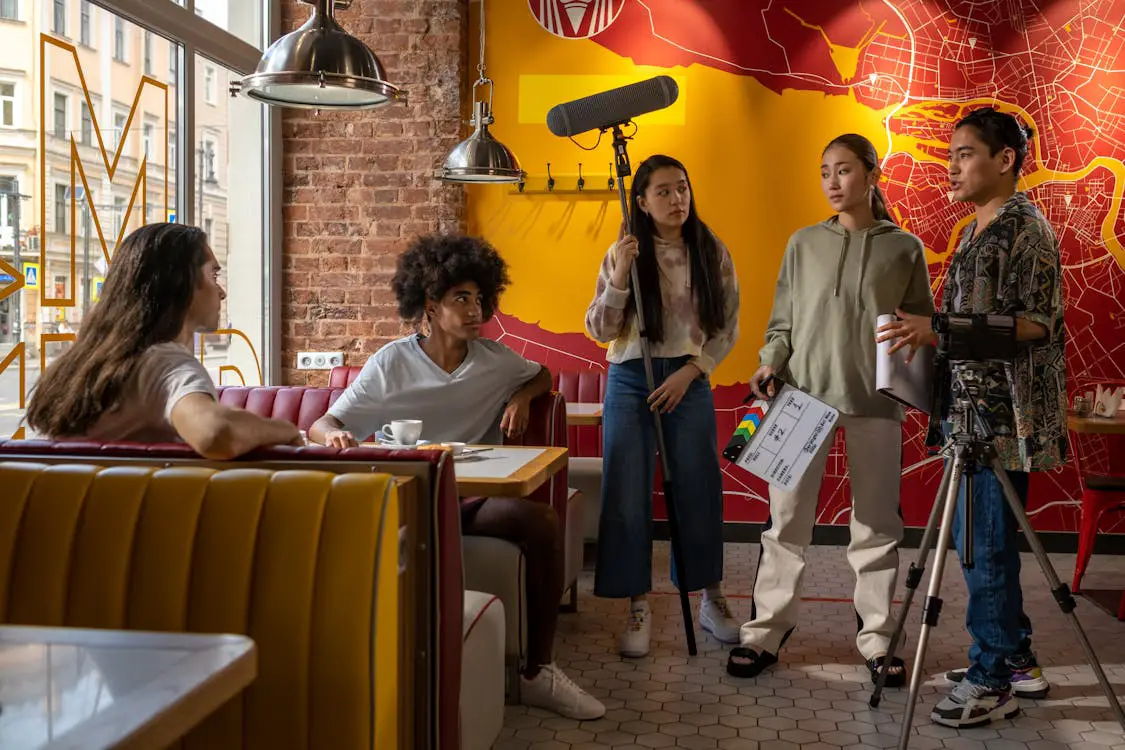How Do You Get Your First Acting Job?

Breaking into the acting industry can seem like a daunting task, but with determination, preparation, and a strategic approach, landing your first acting job is possible. Whether you’re dreaming of the big screen, TV shows, or theater, the journey starts with building your skills, creating opportunities, and putting yourself out there.
1. Hone Your Craft
Before auditioning for roles, it’s essential to develop your acting skills. Even natural talent benefits from training and practice.
- Take Acting Classes: Enroll in workshops or acting schools to learn techniques like method acting, voice modulation, and stage presence.
- Study the Greats: Watch performances by accomplished actors to analyze their techniques and approaches to characters.
- Join Community Theater: Participating in local productions is a great way to gain experience and confidence.
“Acting is like any other craft,” says Oscar-winning actor Viola Davis. “You have to put in the work, train hard, and constantly improve.”
2. Build Your Résumé and Portfolio
Casting directors need to see what you can offer, so create a professional portfolio to showcase your skills.
- Headshots: Invest in high-quality headshots. These photos should be simple, natural, and highlight your unique look.
- Résumé: List any acting experience, training, and special skills (like singing, dancing, or accents). If you’re just starting out, include school plays, workshops, or improv classes.
- Demo Reel: Record a short demo showcasing your acting abilities, even if it’s just monologues or scenes you create with friends.
“A good headshot can get you in the door,” explains casting director Sarah Finn. “It’s the first thing we see, so make sure it’s professional and reflects who you are.”
3. Find Audition Opportunities
To land your first job, you need to audition. There are several ways to find opportunities:
- Online Casting Platforms: Websites like Backstage, Casting Networks, or Actors Access post auditions for beginners and professionals.
- Social Media and Networking: Follow casting agencies and production companies on platforms like Instagram or Twitter. They often post open casting calls.
- Local Resources: Check community boards, theater groups, and local film projects for beginner-friendly opportunities.
- Agents: While not essential for your first role, a talent agent can help you find auditions and negotiate contracts.
4. Start Small
For your first acting job, consider smaller, beginner-friendly roles:
- Student Films: Film schools often need actors for projects, providing a great way to gain experience and footage for your reel.
- Background Work: Extra work in TV shows or movies gives you on-set experience and a peek into how productions operate.
- Independent Projects: Indie films, web series, or low-budget productions are often more open to casting newcomers.
“Don’t be afraid to start small,” says actor Chris Pratt. “My first gigs were tiny roles, but they taught me so much about the industry.”
5. Prepare for Auditions
Once you land an audition, preparation is key:
- Learn the Material: Memorize your lines and understand the character’s motivations.
- Practice: Rehearse in front of a mirror or with a friend to refine your performance.
- Dress the Part: Wear clothing that suggests the character without being a full costume.
- Stay Confident: Nerves are natural, but confidence shows you’re ready to perform.
6. Be Persistent and Resilient
Rejection is part of the acting journey. Not every audition will lead to a job, but each experience builds your skills and resilience.
“Every no is one step closer to a yes,” actor Dwayne Johnson advises. “You have to keep showing up, keep improving, and believe in yourself.”
7. Build Relationships
Networking is a critical part of the industry. Attend industry events, join acting groups, and stay in touch with people you meet during auditions.
- Be Professional: Always be punctual, polite, and prepared.
- Follow Up: After auditions or meetings, a simple thank-you email can leave a positive impression.
- Stay Active: Even between jobs, continue training, auditioning, and building your portfolio.
Final Thoughts
Getting your first acting job is about preparation, persistence, and passion. With the right mindset and a proactive approach, you can open the door to opportunities in the world of acting.
As actor Bryan Cranston once said, “Your job isn’t to book the role. Your job is to give your best performance and leave an impression. The rest will follow.”




